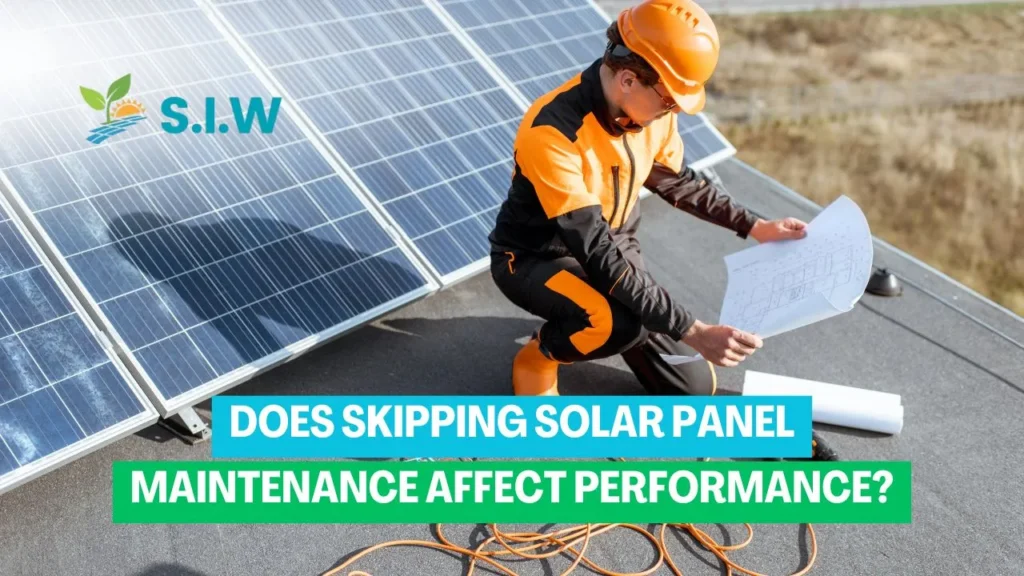Solar panels are a significant investment for any property owner, promising long-term savings and sustainable energy solutions. However, to maximize their efficiency and lifespan, regular maintenance is essential. This article delves into the critical reasons why skipping solar panel maintenance can adversely affect performance and how regular upkeep ensures optimal functionality.
Understanding Solar Panel Performance
Solar panels are designed to convert sunlight into electricity through photovoltaic cells. Over time, their performance can be influenced by various factors, including environmental conditions, panel age, and maintenance practices. One critical aspect often overlooked is the buildup of dirt, dust, or debris on the panels. How Bad Is It If I Don’t Clean Solar Panels? Dirty solar panels can reduce their efficiency significantly, leading to lower energy output. Regular cleaning and maintenance ensure optimal performance, especially in areas prone to pollution or dust accumulation. Understanding these factors helps in recognizing the importance of consistent maintenance.
Impact of Skipping Regular Maintenance
1. Decreased Energy Output
Dust and Debris Accumulation: Solar panels are exposed to the elements, leading to the accumulation of dust, dirt, leaves, and other debris. This buildup can obstruct sunlight from reaching the photovoltaic cells, resulting in reduced energy output. Regular cleaning ensures that the panels remain unobstructed and continue to perform efficiently.
Bird Droppings and Environmental Contaminants: Bird droppings and environmental pollutants can create hotspots on solar panels, causing localized heating. This not only reduces the efficiency of the affected cells but can also lead to permanent damage if not addressed promptly.
2. Increased Risk of Damage
Wear and Tear: Over time, solar panels are subjected to environmental stressors such as UV radiation, hail, and extreme temperatures. Regular maintenance allows for the early detection of any wear and tear, preventing minor issues from escalating into major problems that could require costly repairs or replacements.
Loose Connections and Wiring Issues: The electrical connections and wiring of solar panels can become loose or damaged over time. Routine inspections help identify and rectify these issues before they affect the overall performance of the system.
3. Reduced System Efficiency
Performance Degradation: Solar panels generally experience a gradual decrease in performance over their lifespan. However, skipping maintenance accelerates this degradation. Regular checks and maintenance ensure that the panels operate at their optimal efficiency, maximizing the return on your investment.
Inverter and Battery Health: The inverter and battery are crucial components of a solar power system. Neglecting maintenance can lead to inverter malfunctions and battery degradation, further diminishing the system’s efficiency.
Signs That Your Solar Panels Need Maintenance
1. Lower Energy Bills
A noticeable decrease in energy output is often reflected in your electricity bills. If you observe a significant drop in energy generation despite consistent sunlight exposure, it may indicate that your solar panels require maintenance.
2. Visible Damage
Cracks, chips, or other visible damage on the panels or their mounting hardware can signal a need for maintenance. Promptly addressing these issues helps prevent further damage and ensures continued performance.
3. System Alerts and Error Messages
Modern solar power systems are equipped with monitoring technology that alerts users to performance issues. Pay attention to any error messages or alerts from your system’s monitoring software, as these can indicate underlying problems that need to be addressed.
Routine Maintenance Tasks for Optimal Performance
1. Regular Cleaning
Frequency: Solar panels should be cleaned at least twice a year. However, in areas with high dust levels or bird activity, more frequent cleaning may be necessary.
Cleaning Method: Use a soft brush or a cloth with mild soap and water to gently clean the panels. Avoid abrasive materials or harsh chemicals that could damage the surface.
2. Inspection and Repairs
Visual Inspections: Conduct regular visual inspections to check for any visible damage or debris accumulation. Look for issues such as cracked panels, loose wiring, or damaged mounting hardware.
Professional Inspections: Schedule annual inspections with a certified solar technician to ensure that all components of your solar system are functioning correctly and to address any issues that may not be visible during routine checks.
3. Monitoring and Adjustments
Performance Monitoring: Utilize monitoring systems to track the performance of your solar panels. Regularly review performance data to identify any anomalies or declines in efficiency.
System Adjustments: Make necessary adjustments based on monitoring data and technician recommendations. This may include recalibrating the inverter, adjusting panel angles, or replacing worn-out components.
The Long-Term Benefits of Regular Maintenance
1. Extended Lifespan
Proper maintenance significantly extends the lifespan of solar panels and associated components. By addressing minor issues promptly, you prevent them from escalating into major problems that could shorten the system’s life.
2. Enhanced Efficiency and Savings
Well-maintained solar panels operate at their peak efficiency, ensuring that you maximize the energy generated and the savings on your electricity bills. Regular upkeep also helps avoid costly repairs and replacements.
3. Increased Property Value
A well-maintained solar power system adds value to your property. Potential buyers are more likely to invest in a property with a reliable and efficient solar system, knowing that it has been properly cared for.
Conclusion
Skipping solar panel maintenance can have serious consequences for both the performance and longevity of your solar power system. Regular cleaning, inspections, and monitoring are essential to ensure that your panels operate efficiently and continue to provide the benefits you expect. By committing to routine maintenance, you protect your investment, enhance system efficiency, and enjoy long-term savings.








